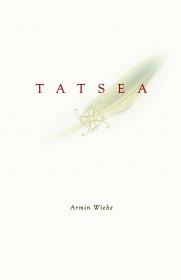
Armin's Shorts
Showcasing a selection of stories from Armin Wiebe's 30 year writing career, Armin's Shorts features tales from the familiarly fictitious Mennonite community of Gutenthal, re-imagined origin stories from the Tlįchǫ of the subarctic, and flights of pure fantasy set in modern day Winnipeg.
Funny enough to make your "grandmother sit up in her black trough coffin and laugh," and so gut wrenching you'll feel "that clunk in the heart, and that wrunsch in the stomach," master story teller, Armin Wiebe, presents a veritable smorgasbord of short stories that cover the gamut of human experience with a wry sense of humour, a stern sense of justice, and a warm and tender heart.
From the Gutenthal Galaxy
- From reading the stories in ‘From the Gutenthal Galaxy’ how would you describe the community of Gutenthal?
- What themes or motifs do these Gutenthal stories have in common?
- Two of the stories feature Oata as a character. What do you make of her?
- Water is a feature in three of the Gutenthal stories. What significance does this have?
- What is your impression of Gutenthal men as presented in these stories?
- While four of the stories in the first section are written in a first person voice, the stories in this section are written in third person. What difference does that make?
Beginnings
- In her cover blurb, Susie Moloney says, “I don’t think ‘Barn Dance’ will ever leave me.” What characteristics of the story might have led her to say that?
- Do the styles these Gutenthal stories are written in enhance or hinder your reading experience?
- Why might this section be labeled ‘Beginnings’?
Subarctic Stories
- In the stories ‘The Little Kollouch’ and ‘A Woman Who Married Yamozha’, are the first person narrators convincing as women? Why or why not?
- What do the three stories in this grouping suggest about the importance of stories and their role when cultures meet?
- How do these stories make you feel about your own stories?
The Moonlight Sonata of Beethoven Blatz
- In the story ‘And Besides God Made Poison Ivy’, what questions are hinted at but not answered?
- What do you notice about the narrative voice of the first five stories in this section?
- How would you identify the era or time period of the stories in this section?
- What are the dilemmas Suschkje faces in ‘Engel Bengel’ and ‘Mary’s Creek’, and how does she handle them? Are her actions credible?
- In ‘Moonlight Rehearsal’ the narrative voice changes from the previous five stories. How does that affect your reading experience?
- How would you characterize Suschkje? Kjrayel Kehler? Beethoven Blatz?
- What do you see in the relationship between Suschkje and Kjrayel?
- How about the relationship between Suschkje and Blatz?
Olfert
- How would you describe Olfert’s world and his place in it?
- What links these five stories?
- What strikes you about Olfert’s relationship with women?
Return
- What are these last two pieces about?
- Are these final pieces stories or poems? What makes you think this?
General questions about the book
- Would you recommend this book to other readers? Why or why not?
- What role does music play in these stories?
- Comment about Armin Wiebe’s use of language. Does the inclusion of “non-English” words enhance or hinder your reading experience?
- What wines and finger food would complement a discussion of Armin’s Shorts?
You may also be interested in these titles
 Turnstone Press Ltd.
Turnstone Press Ltd.
206-100 Arthur Street
Winnipeg, Manitoba, Canada
R3B 1H3
Follow Us
Quicklinks
![]()
![]()
![]()
![]()



